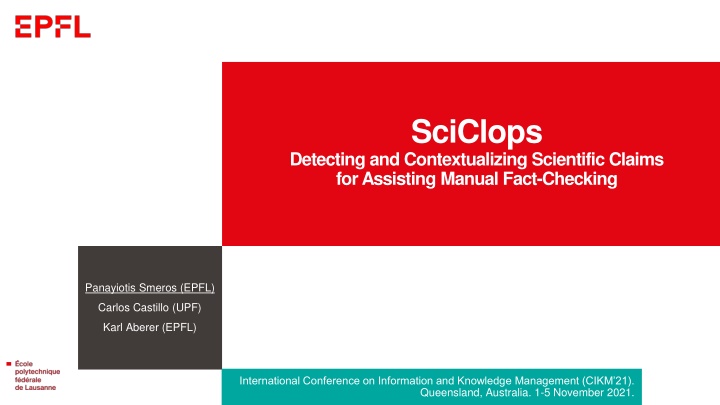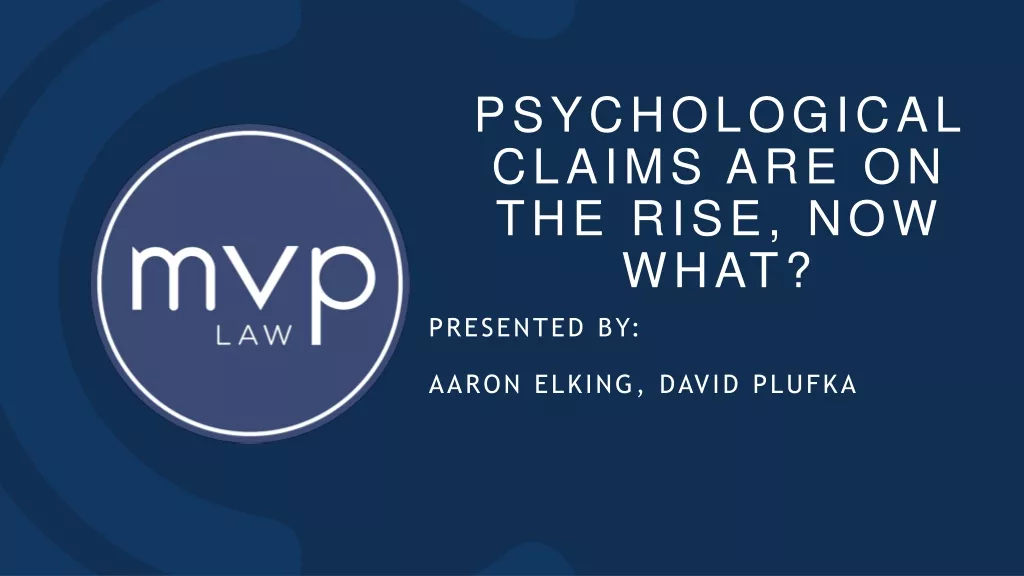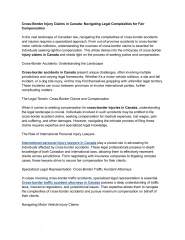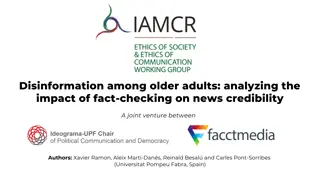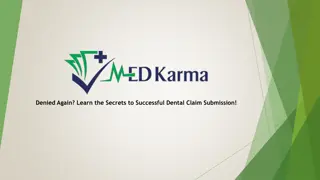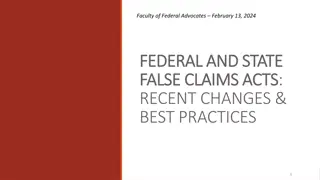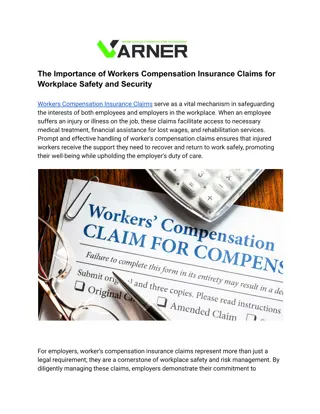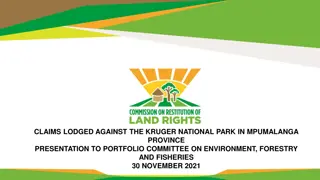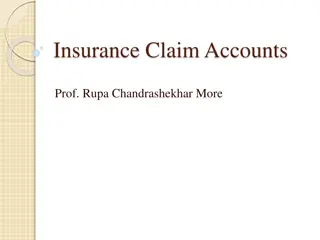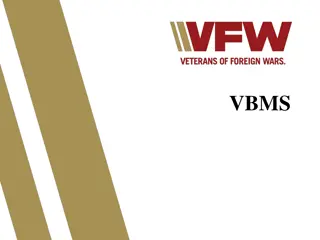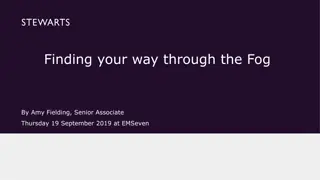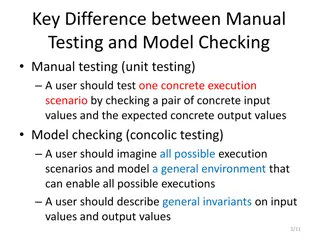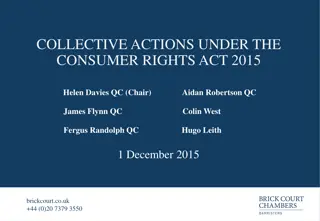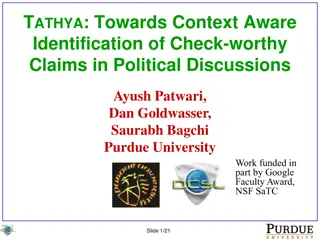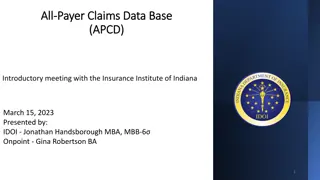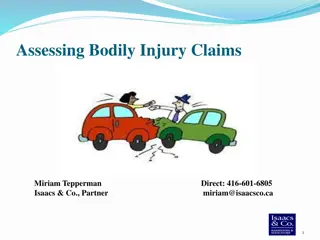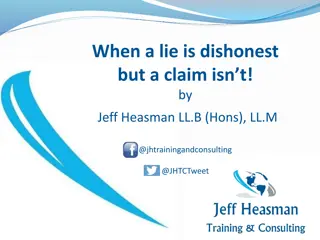SciClops: Detecting Scientific Claims for Fact-Checking Assistance
In this research presented at CIKM '21, SciClops focuses on detecting and contextualizing scientific claims to aid in manual fact-checking processes. By analyzing the granularity of scientific literature sources and utilizing multifaceted contextual support, the study introduces a sentence classification model and claim extraction methodology involving various heuristics and contextualized embeddings. The evaluation of claim extraction models, datasets, and clustering approaches sheds light on effective methods for verifying claims amidst post-truth discourses.
Download Presentation

Please find below an Image/Link to download the presentation.
The content on the website is provided AS IS for your information and personal use only. It may not be sold, licensed, or shared on other websites without obtaining consent from the author.If you encounter any issues during the download, it is possible that the publisher has removed the file from their server.
You are allowed to download the files provided on this website for personal or commercial use, subject to the condition that they are used lawfully. All files are the property of their respective owners.
The content on the website is provided AS IS for your information and personal use only. It may not be sold, licensed, or shared on other websites without obtaining consent from the author.
E N D
Presentation Transcript
SciClops Detecting and Contextualizing Scientific Claims for Assisting Manual Fact-Checking Panayiotis Smeros (EPFL) Carlos Castillo (UPF) Karl Aberer (EPFL) International Conference on Information and Knowledge Management (CIKM 21). Queensland, Australia. 1-5 November 2021.
Post-truth Discourse 2 Ibuprofen can worsen COVID19 symptoms 2K Citations Avoid Ibuprofen when possible 40K Retweets & Likes WHO does not recommend against the use of Ibuprofen 8K Retweets & Likes Selective Amplification Political Agendas Misinterpretation
Context is Everything 3 Granularity Scientific Literature Source Adherence Content Diffusion Patterns SciLens (WWW '19, VLDB '20) Heterogeneous indicators denote the credibility of news articles Writing Style Quotes Social Media Sources Reach Stance Articles Check-Worthy Claim Related Papers Related News Claims SciClops (CIKM '21) Multifaceted context supports the verification of claims Fact-Checked Claims
4 Sentence Classification Model Claim Extraction
Claim Extraction: Methodology 5 Heuristics (Grammar-Based & Context-Based) Global Embeddings Random Forest Contextualized Embeddings BERT SciBERT (BERT + SemanticScholar) Domain-Specific Contextualized Embeddings NewsBERT (BERT + million-headlines) SciNewsBERT (SciBERT + million-headlines) New! New! New! New!
Claim Extraction: Datasets 6 Training Testing UKP IBM Argumentation Mining Crowd Experiment 700 sentences 3 workers/sentence Subsets Generic (~22K samples) Scientific (~32K samples) Weak Agreement 125 claims / 174 non-claims Strong Agreement 82 claims / 242 non-claims
Claim Extraction: Evaluation 7 Best model: BERT (with domain-specific finetuning) Lighter yet decent model: Random Forest
8 Content- & Graph-Based Model Claim-Paper Clustering
Claim-Paper Clustering: Methodology 9 Content-Based (Baseline) LDA, GSDMM GMM, K-Means Graph-Based Optimization Regularizer penalizes uniformity Hybrid Alternate Optimization Considers both content and graph modalities
Claim-Paper Clustering: Evaluation 10 Average Silhouette Width (Semantic Coherence) Link-Based Recommendation Recall@3 (Interconnection Coherence) Best Model: Hybrid (with both modalities considered equally)
11 Check-Worthy Claim Ranking
Check-Worthy Claim Ranking 12 Knowledge Graph (CDC vocabulary) Graph Topology Causality-Based (e.g., symptoms vs diseases) Aspect-Based (e.g., COVID19: origin & mortality rate) Graph Weighting Social Media popularity & News Outlet reputation Claim Ranking Betweenness Centrality or in-Degree
13 Overall Evaluation
Overall Evaluation: Top-40 Claims 14 RMSE Non-Experts Without Context 1.97 Non-Experts With Enhanced Context 1.54 ClaimBuster 1.74 Google Fact Check Explorer 2.79 Experts 1.02 Non-Experts + Enhanced Context > Commercial Systems Enhanced Context = accuracy confidence effort
Overall Evaluation: Case Study 15 Contradictory Claims Marijuana does not treat chronic pain or post-traumatic stress disorder Marijuana can help battle depression, anxiety, post-traumatic stress disorder, and even addictions to alcohol and painkillers Scientific Paper (Enhanced Context provided by SciClops) Marijuana use is associated with worse outcomes in symptom severity and violent behavior in patients with posttraumatic stress disorder CNN Claim Men s Journal Claim Non-Experts Without Context Borderline Borderline Non-Experts With Enhanced Context Valid Highly Invalid ClaimBuster Borderline Valid Google Fact Check Explorer N/A N/A Experts Highly Valid Highly Invalid Only Non-Experts with Enhanced Context identified Men s Journal s claim as Invalid
Put an eye on SciClops! 16 BERT-based models can effectively detect scientific claims only after domain-specific finetuning We must exploit both content and graph modalities to build coherent claim-paper clusters We can rank claims based on their check-worthiness using a custom Knowledge Graph Thanks freepik.com for the images! Non-experts with the appropriate context perform similarly to experts and commercial fact-checking systems Thank you!
